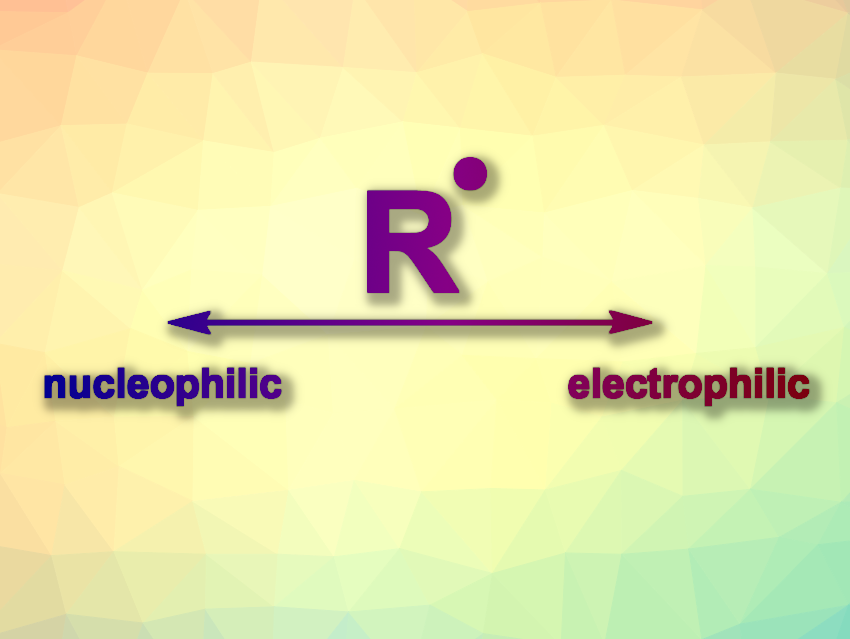Radicals are important reactive intermediates, e.g., in many organic transformations, polymerizations, biochemistry, etc. To understand radical chemistry, the strengths of the bonds that are broken and formed during a particular transformation are crucial. However, in addition to these purely thermodynamic factors, kinetics can also play a key role, and they can be influenced by the polarity of the radicals. The polarity, i.e., the nucleophilicity or electrophilicity of a radical, can dictate the selectivity and feasibility of some radical reactions. For example, nucleophilic radicals can be well-suited for certain additions to electron-deficient alkenes and electrophilic radicals for certain additions to electron-rich alkenes or arenes.
David A. Nagib, The Ohio State University, Columbus, USA, and colleagues aimed to create a useful database of the polarities of commonly occurring radicals that are relevant for synthesis by calculating the values and experimentally validating the set of results. The team used an electrophilicity/nucleophilicity score (ω) that can be calculated from a molecule’s ionization energy and electron affinity. These values can be obtained by simple density functional theory (DFT) calculations.
The researchers calculated ω for over 550 radicals that frequently occur as intermediates in organic synthesis, including both carbon-centered and heteroatom-centered radicals. Over 95 % of the calculated polarities were previously unknown. The team experimentally validated a subset of the values by comparing the rates of reactions of the radical in question with trapping agents that are either a match or a mismatch for the calculated radical polarity. The observed conversion after a fixed time for different radicals correlated well with their calculated polarities.
Overall, the work shows that radical polarity can be useful for reactivity prediction, complementing other factors such as bond energies, steric bulk, solvent effects, etc. The researchers prepared a printable poster summarizing the calculated radical polarities.
- Radical Polarity,
Jacob J. A. Garwood, Andrew D. Chen, David A. Nagib,
J. Am. Chem. Soc. 2024.
https://doi.org/10.1021/jacs.4c06774




